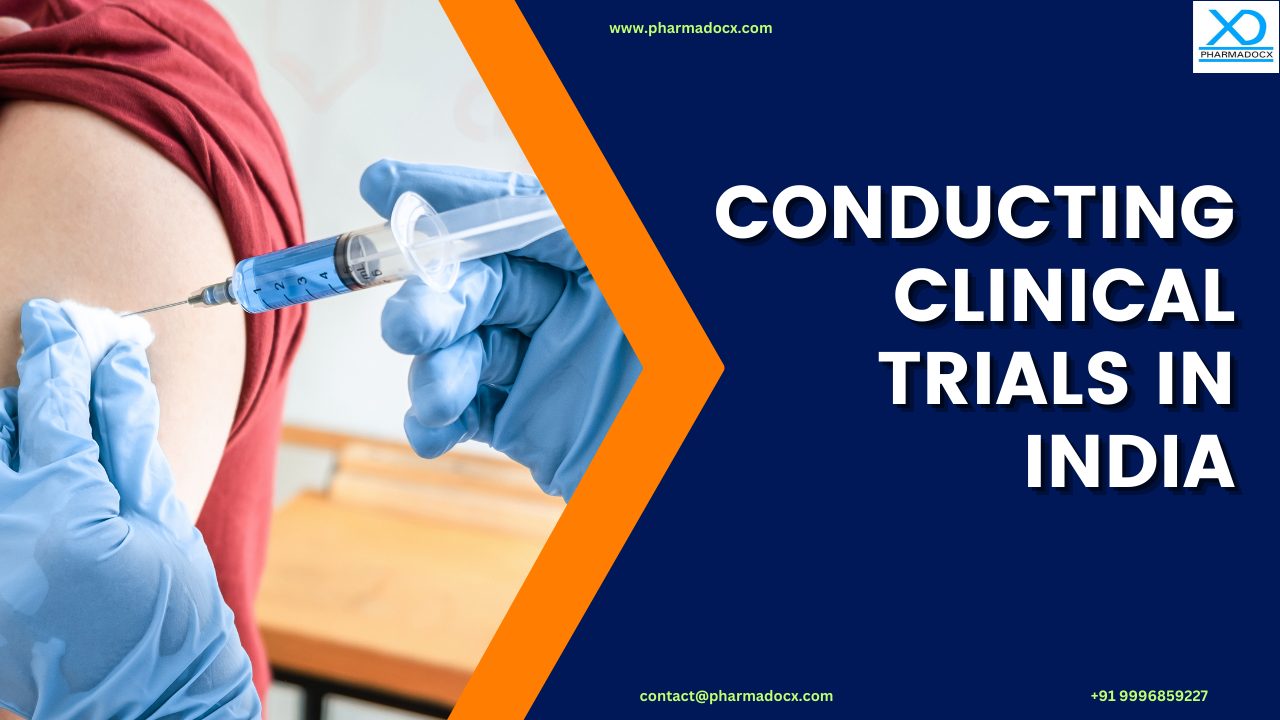Clinical trials are conducting for evaluating the safety of new drugs prior to launching them. India has unique advantages for conducting clinical trials. India has trained investigators, large patient pool, and premiere research institutes. Additionally, India has considerably low per patient trial cost as compared with developed countries. Thus, the clinical trials have to be regulated to protect the Indian clinical trial market. Indian clinical trial regulations are in place to safeguard trial participants and to improve the quality of studies in India. The CDSCO has laid down the regulations for conducting clinical trials in India. In this blog, we will focus on the Indian clinical trial market and the Indian regulations for conducting clinical trials. Additionally, we will provide an overview of the documents and registration process for applying for clinical trial registration in India.
What is a clinical trial?
A clinical trial is a systematic study of new drugs with the aim of evaluating their safety and efficacy. The trials are used to generate supportive data on the drug’s clinical pharmacological effects and any adverse effects. Basically, these trials are conducted to evaluate how new diagnostics and therapies affect people’s health. Moreover, these trials are conducted with the intention of receiving marketing permission.
A clinical trial protocol is carefully designed as per the requirements of the stakeholders, patients, and physicians. The trial protocol is thoroughly examined prior to its start. Furthermore, the clinical trial can only start once it has been authorised. The experimental new drug is used to treat human volunteers to assess its effects on them.
What are the phases of a clinical trial?
Phase-1: This phase focuses on analysing the safety of the new drug’s interactions with the human body.
Phase-2: This phase focuses on dosage, effects, and safety. Additionally, the new drug ‘s dose’s efficacy in a smaller population is also evaluated.
Phase-3: This phase focuses on the efficiency of the drug. Moreover, safety and efficacy continue to be a focus of this phase. However, these parameters are evaluated in a relatively large population.
Phase-4: This phase focuses on analysing the parameters in a larger population. Additionally, post-marketing effectiveness and safety are also evaluated.
Landscape of clinical trials in India
India is considered a hotspot for clinical trials. As on the date of writing of this article 72014 clinical trials were registered in India, as per the Clinical Trial Registry India (CTRI). Notably, in 2022, the Indian clinical trial market was estimated to be pegged at USD 2.07 billion. By the year 2030, the market size is expected to reach USD 3.88 billion.
Moreover, in 2009, outside of the US, India was the second-most popular country to carryout clinical preliminary exams. Over the past few decades, clinical trials in India have been growing at an exponential rate. Multiple factors are contributing to the rise in number of clinical trials conducted in India. Cost-effective trial strategies, cheap trained labour, streamlined Indian clinical trial regulations, experienced scientists and doctors are fuelling this rise. Hence, international pharmaceutical companies and clinical research organizations choose to conduct clinical trials in India.
Regulations for conducting clinical trials in India
Various regulations are in place for conducting clinical trials in India. These regulations focus on safeguarding the interests of trial volunteers and to guarantee the safety, effectiveness, and quality of drugs. The trials have to conducted in compliance with an ethics committee and a DCGI approved protocol. For regulatory clinical trials, registration with Clinical Trials Registry of India is mandatory as of June 2009. The trial investigators are mandatorily required to obtain written informed consent from all trial participants. Additionally, they need to secure approval from the institutional ethics committee. Furthermore, serious adverse events that occur during a clinical trial have to be reported to the concerned authority.
Schedule Y
The main regulation governing clinical trials in India is Drugs and Cosmetics Act of 1940 Schedule Y along with Rules 122A, 122B, 122D, 122DA, 122DAC, and 122E. All clinical trials under the purview of Schedule Y are required by law to adhere to the stipulated guidelines. Moreover, the guidelines have provided templates for informed consent forms and ethics committee approval. Additionally, clinical trial protocol types and format for serious adverse events reporting have been provided. Furthermore, the schedule Y is regularly updated and revised. As a clinical trial investigator, it may not be possible to update oneself with the latest regulations for conducting clinical trials in India. We at Pharmadocx Consultants keep ourselves updated with the latest Indian clinical trial regulations. Feel free to reach out to us, for any support and guidance on Indian clinical trial regulations.
Indian GCP guidelines
The Indian good clinical practise (GCP) guideline is the other primary regulation all clinical trials in India have to comply with. These guidelines were formulated by the experts in the CDSCO specifically for India. The aim was to streamline regulations for clinical trials in India. GCP is a set of guidelines stating ethical and quality requirements that must be fulfilled while conducting clinical trials. The Indian GCP guidelines were developed based on ethical standards for biomedical research on human subjects published by the ICMR. Furthermore, WHO, ICH, USFDA, and European GCP guidelines were also taken into consideration. For guidance on Indian GCP guidelines, feel free to reach out to us.
Stage wise regulatory approval process for drug development in India
The following is an overview of the regulatory approval stages in the process of drug development
- Drug Discovery Stage
- Pre-Clinical Testing Stage
- Permission to Carryout Clinical Trial
- Launch of New Drug
- Registration of the New Drug
- Clinical Trial in Humans
- Post Marketing Surveillance Stage
Information required for registering clinical trials in India
Indian clinical trial regulations require the following details and documents for the clinical trial registration application.
- Details of the principal investigator: name, affiliation, designation, contact details and email ID, and official address.
- The scientific title of the study
- Study title in plain language
- Secondary ID
- Details of the study site
- List of material and funding support sources
- Details of the person for scientific query and person for public query
- Details of primary and secondary sponsor
- Ethics committee’s name and approval status
- Regulatory clearance obtained from CLA
- Target sample population size
- Recruitment status of the trial
- Inclusion and exclusion criteria details, such as age and sex, for participant selection
- Trial phase details
- Estimated trial duration
- First enrolment date
Indian clinical trial registration process
We have provided an over of the registration process for conducting clinical trials in India.
- Sign up on the CTRI website and create your profile.
- The details and documents mentioned above along with all the information required for the CTRI registration data set have to be submitted.
- After the necessary information is uploaded, CTRI will provide a reference number for the new clinical trial.
- The CTRI will review and verify the data set and trial details.
- After verifying all the details and if the CTRI body is satisfied with the information, a unique registration number for the trial is issued. Academic journals require this clinical trial registration number for publishing clinical trial studies.
In this blog, we have detailed the regulations for conducting clinical trials in India. Additionally, we have provided an overview of the Indian clinical trial registration process. Our team of experts at Pharmadocx Consultants has in-depth knowledge of the CDSCO regulations for pharmaceuticals in India. To simplify your regulatory journey in India, simply drop an email at [email protected] or call/Whatsapp on 9996859227. We will be more than happy to help you.





